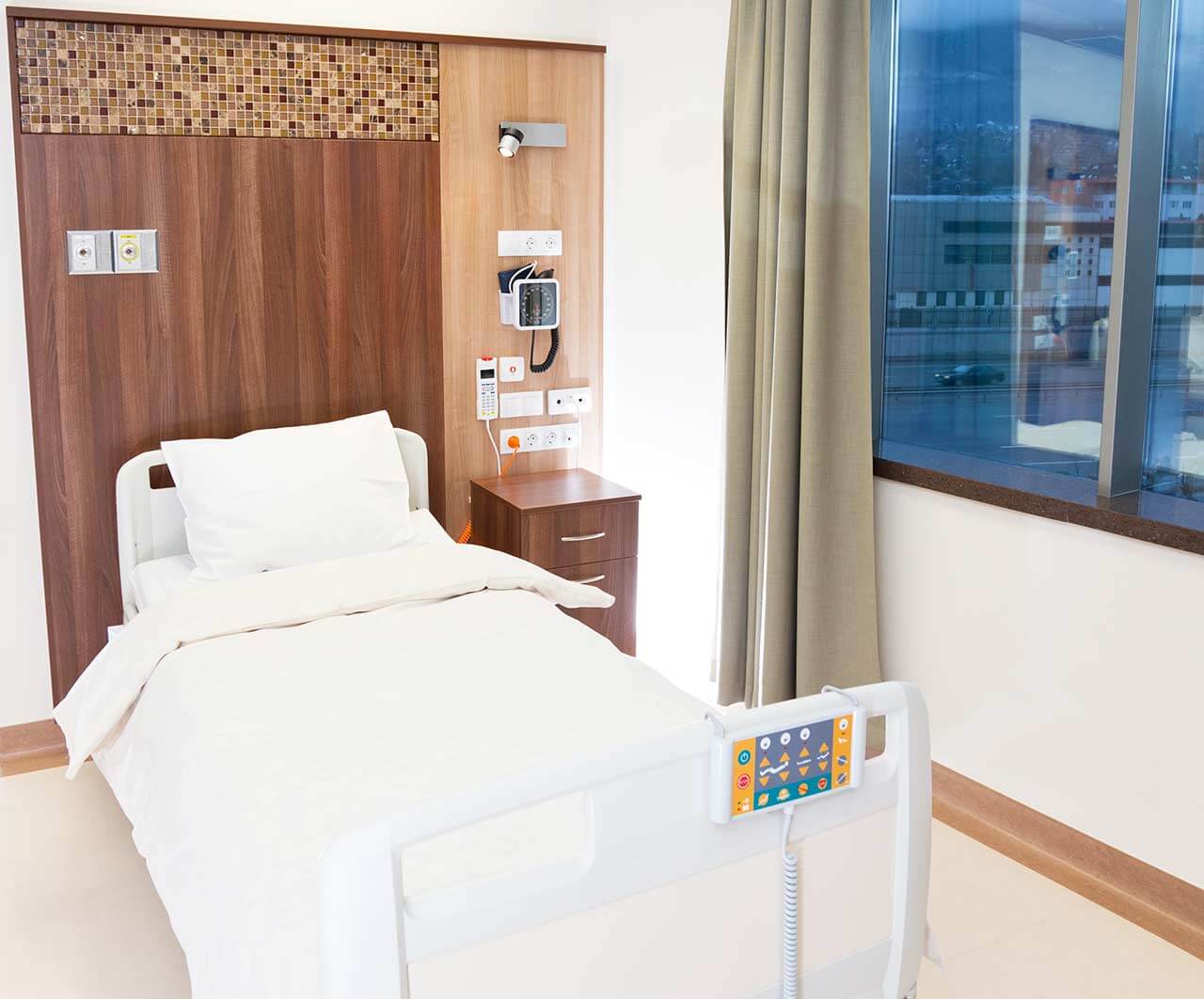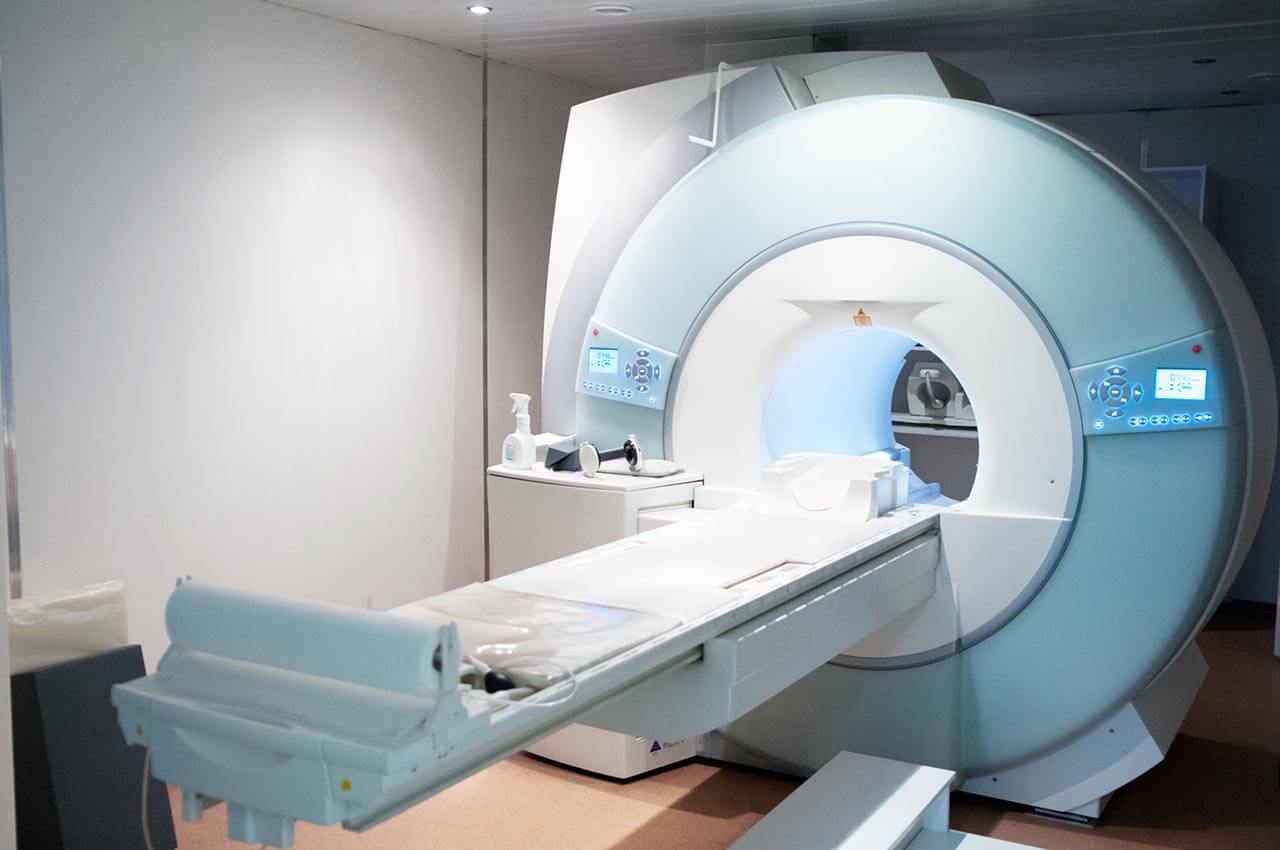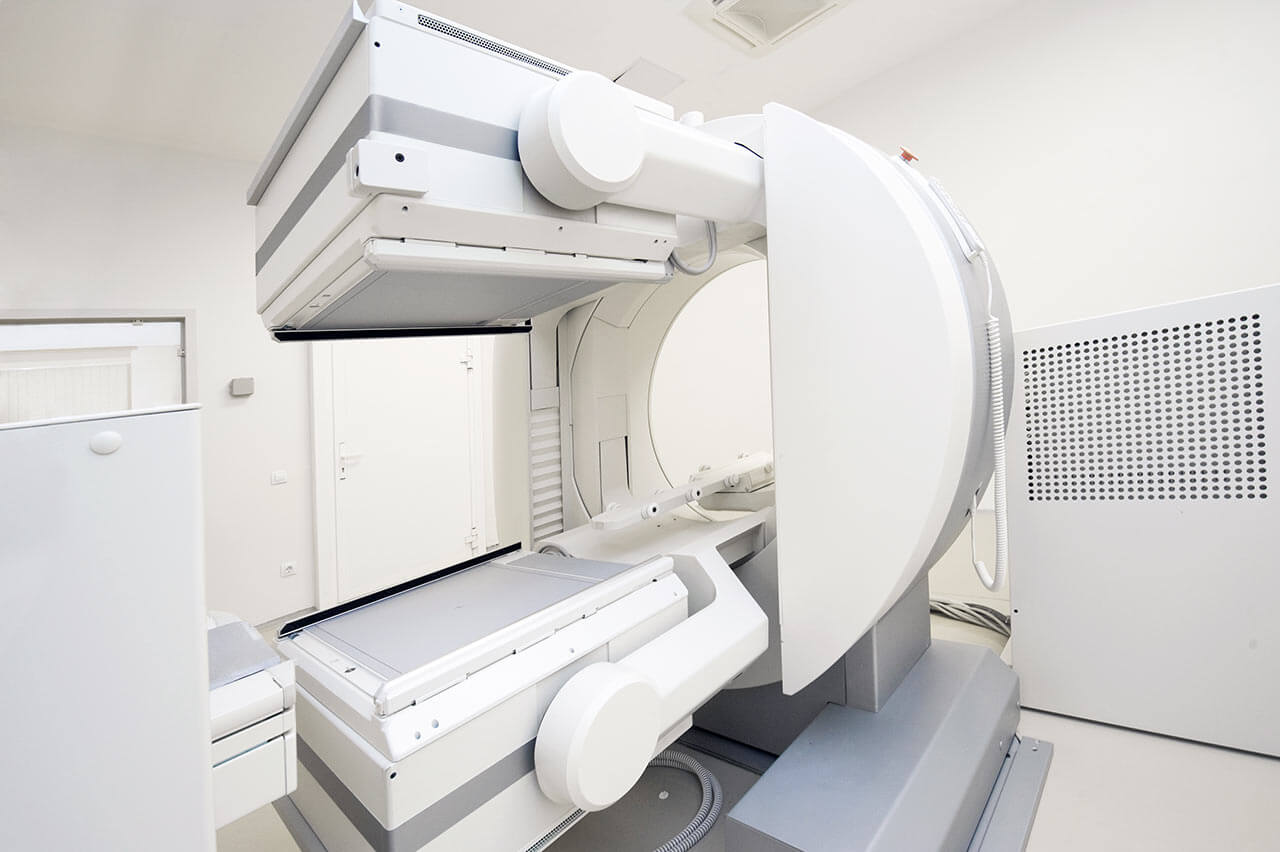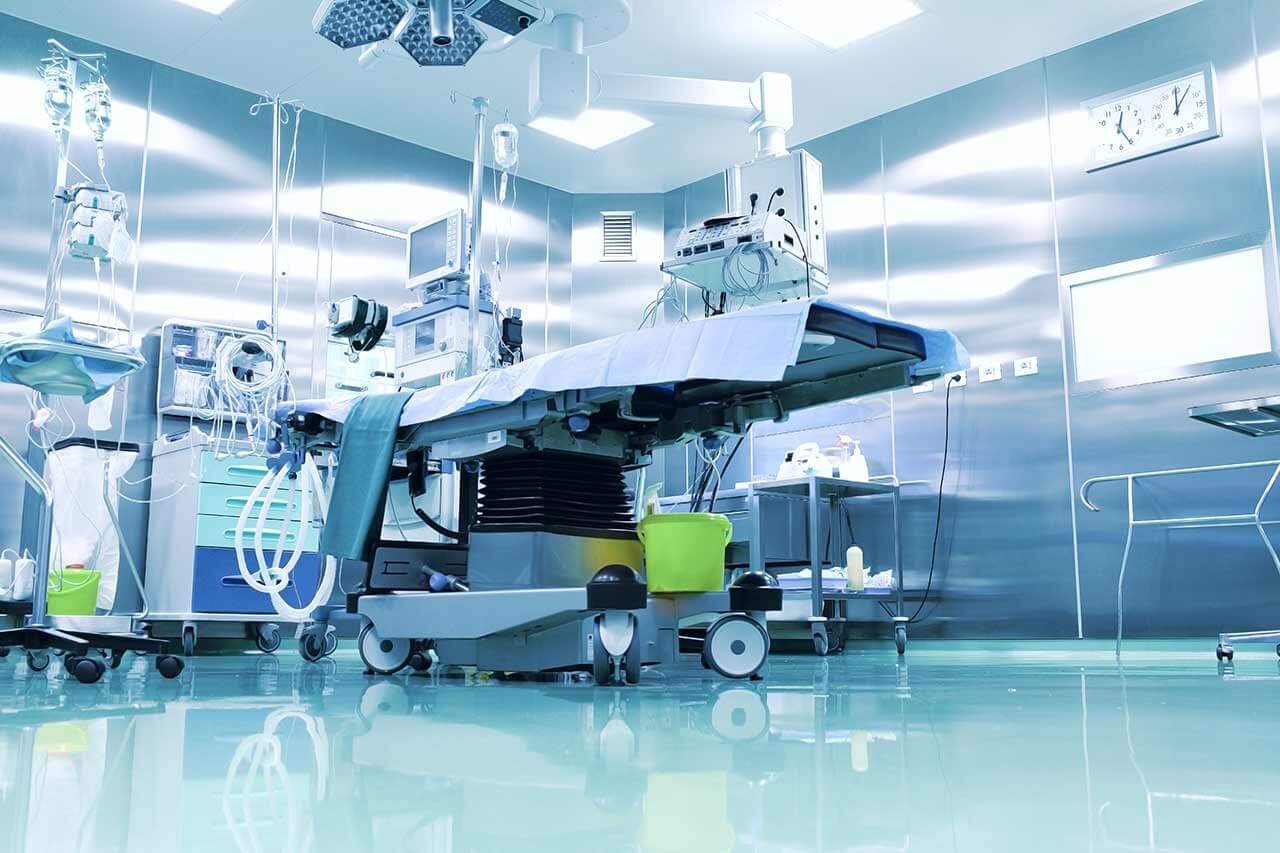
The program includes:
- Initial presentation in the clinic
- clinical history taking
- physical examination
- review of medical records
- laboratory tests:
- complete blood count
- general urine analysis
- biochemical analysis of blood
- TSH-basal, fT3, fT4
- tumor markers
- indicators of inflammation (CRP, ESR)
- indicators blood coagulation
- ultrasound
- CT/MRI scan
- preoperative care
- cryosurgery for skin cancer
- symptomatic treatment
- control examinations
- the cost of essential medicines and materials
- nursing services
- full hospital accommodation
- explanation of future recommendations
Required documents
- Medical records
- Photo of the affected body regions
- Biopsy results (if available)
Service
You may also book:
 BookingHealth Price from:
BookingHealth Price from:
About the department
The Department of Dermatology and Allergology at the University Hospital Marburg UKGM offers all the modern diagnostic and therapeutic options for patients with skin diseases, including skin manifestations of allergic reactions. The department has been conducting successful clinical activities for more than 100 years, and therefore it has extensive experience and unique achievements in its area of specialization. Such advanced fields of dermatology as laser therapy, light therapy, dermatohistology, etc. are well developed in the department. It operates an emergency dermatological care service, which provides round-the-clock patient care. The Chief Physician of the department is Prof. Dr. med. Michael Hertl.
The priority focus of the department’s clinical work is dermatosurgery. The specialists in this field conduct surgical treatment of skin tumors, venous diseases, malformations and other skin diseases. With appropriate clinical indications, surgical interventions are performed using minimally invasive techniques. In addition, plastic reconstructive operations are successfully performed here. One of the department’s special offers in this focus is electrochemotherapy, which is used to treat certain types of skin and superficial metastases. The combination of electrical impulses with chemotherapeutic drugs mutually enhances the effect of both methods. It also makes it possible to reduce the dosage of a chemotherapeutic drug. Electrochemotherapy is performed under anesthesia (depending on the location of the tumor and the number of metastases, the procedure can be performed under general anesthesia or spinal anesthesia with additional sedation). On average, the procedure takes 30 minutes. The surgical options of the department are complemented by microscopically controlled surgery, plastic reconstructive interventions, skin transplantation, surgical treatment of chronic wounds and other surgical measures.
Laser therapy is widely used in clinical practice (for example, it serves for the removal of warts, scar revision, treatment of pathological changes in blood vessels and removal of unwanted hair). The department is fitted out with the cutting-edge equipment for ablative laser therapy (Erbium YAG laser and CO2 laser) for pathological changes in the skin, genetic skin diseases, as well as coagulation laser therapy for the treatment of blood vessel lesions.
In the field of allergology, various types of diagnostics and therapy are offered for patients suffering from allergies to food, drugs and insect venom, contact allergies, allergic rhinoconjunctivitis, urticaria and professional dermatoses. The department is part of the Allergy Center Hesse certified by the German Society of Allergology and Clinical Immunology as the Comprehensive Allergy Center.
The department’s spectrum of medical services includes:
- Diagnostics and treatment of skin tumors
- Malignant melanomas
- Basal cell carcinoma, squamous cell carcinoma
- Rare skin tumors (for example, skin lymphomas, skin sarcomas)
- Surgical tumor resection
- Cytostatic therapy (electrochemotherapy, chemosaturation)
- Vaccine therapy (in case of infection with oncogenic viruses)
- Cryotherapy
- Laser therapy
- Light therapy using ultraviolet (PUVA, UVB311, UVA1) or red light (photodynamic therapy)
- Advanced intensified procedures (using photons, electrons, ions)
- Intensity-modulated radiotherapy (IMRT and VMAT)
- Three-dimensional conformal radiation therapy
- All stereotactic procedures on the brain, lungs, liver
- Brachytherapy
- Ion beam therapy
- Systemic therapy
- Dermatohistopathological studies
- Mycological diagnostics
- Diagnostics and treatment of autoimmune diseases
- Bullous autoimmune dermatoses
- Pemphigus vulgaris
- Paraneoplastic pemphigus
- IgA pemphigus
- Bullous pemphigoid
- Mucous membrane pemphigoid
- Linear IgA dermatosis
- Epidermolysis bullosa acquisita
- Dermatitis herpetiformis Duhring
- Collagenoses
- Systemic scleroderma
- Systemic lupus erythematosus
- Dermatomyositis
- Mixed connective tissue diseases
- Systemic immunosuppressive therapy (in most cases)
- Immunoadsorption
- High dose immunoglobulin therapy (IVIG)
- CD20 antibody therapy
- Bullous autoimmune dermatoses
- Diagnostics and treatment of genodermatoses
- Neurofibromatosis
- Congenital hemidysplasia with ichthyoid-like nevi and limb defects (CHILD syndrome)
- Conradi-Hünermann syndrome
- Focal dermal hypoplasia (Goltz-Gorlitz syndrome)
- Follicular ichthyosis with atrichia and photophobia (IFAP syndrome)
- Hailey–Hailey disease
- Follicular dyskeratosis (Darier’s disease)
- Bloch-Sulzberger syndrome
- Disseminated superficial actinic porokeratosis
- Laser therapy
- Ablation procedures (for example, to remove warts, treat genetic skin diseases)
- Coagulation procedures for the treatment of pathological changes in blood vessels
- Removal of unwanted hair using a diode laser
- Light therapy
- Photodynamic therapy (by daylight)
- Laser therapy
- UV light therapy
- Diagnostics and treatment of psoriasis
- Local therapy
- Light therapy
- Classical systemic therapy
- Advanced types of therapy
- Diagnostics and treatment of diseases of the mucous membranes
- Diagnostics and treatment of chronic wounds
- Dermatosurgery
- Melanoma surgery, including removal of sentinel lymph nodes
- Electrochemotherapy
- Microscopically controlled surgery
- Plastic reconstructive surgery
- Skin transplantation
- Acne inversa treatment
- Dermabrasion
- Chronic wound surgery
- Axillary suction curettage
- Rhinophyma treatment
- Diagnostics and treatment of allergic diseases
- Insect venom allergy (bees, wasps)
- Drug allergy
- Contact allergy (allergy to ointments, creams, flavors, preservatives, etc.)
- Food allergy
- Allergic rhinoconjunctivitis
- Bronchial asthma
- Atopic eczema
- Hives
- Angioedema
- Neurodermatitis
- Occupational dermatoses
- Other diagnostic and therapeutic options
Curriculum vitae
Academic and Professional Career
- Since 2004 C4 Professor and Head of the Department of Dermatology and Allergology at the University Hospital Marburg UKGM.
- 1999 C3 Professor in Immunological Dermatology at the Faculty of Dermatology, University of Erlangen-Nuremberg.
- 1996 Habilitation.
- 1995 - 1999 Senior Physician, Department of Dermatology, University Hospital Aachen.
- 1993 - 1995 Scholarship of the German Research Foundation, Department of Dermatology, National Cancer Center, Bethesda, USA.
- 1988 - 1992 Professional training in the Department of Dermatology at the University Hospital Cologne.
- 1987 Doctoral thesis defense.
- 1986 Medical exam.
Research Focuses
- Dermatology.
- Autoimmune diseases with skin lesions.
- Pemphigus vulgaris.
- Psoriasis.
- Malignant melanoma.
- T-cell based immune mechanisms.
Honorary Memberships
- Since 2010 Member of the National Academy of Sciences Leopoldina.
Photo of the doctor: (c) UKGM - Universitätsklinikum Gießen und Marburg GmbH
About hospital
The University Hospital Marburg UKGM offers patients modern diagnostics and comprehensive therapy at the international level. As a maximum care hospital, the medical facility specializes in all fields of modern medicine ranging from ophthalmology to traumatology and dentistry. The main areas of specialization of the hospital are surgery, neurosurgery, oncology, nephrology with kidney transplantation and children's medicine.
The hospital is the third largest in Germany. Every year, more than 436,000 patients are treated in two locations of the hospital (Giessen and Marburg): 342,000 in outpatient and 94,000 inpatient settings. The medical facility is the first privatized university hospital in the country.
The hospital staff makes a significant contribution to the development of research activities at the Faculty of Medicine of the Justus Liebig University Giessen and the Philipps University of Marburg. To develop new diagnostic and therapeutic methods, as well as to implement them into clinical practice, the specialists maintain active cooperation in a large number of areas.
The widest range of diagnostic and therapeutic services, the advanced infrastructure and technical base, high quality of treatment and professionalism of health workers contribute to the fact that the medical facility has an excellent reputation not only in Germany, but also far beyond its borders.
Photo: (c) depositphotos
Accommodation in hospital
Patients rooms
The patients of the University Hospital Marburg UKGM live in comfortable single and double rooms made in a modern design and light colors. Each room has an ensuite bathroom with shower and toilet. The pediatric departments provide patient rooms for the joint accommodation of mother and child. The standard room furnishing includes an automatically adjustable bed, bedside table, wardrobe, TV, telephone.
Meals and Menus
The patients of the hospital are offered balanced, healthy three meals a day: buffet breakfast, lunch and dinner. The private kitchen, certified according to DIN EN ISO 9001: 2000, is responsible for providing patients with food and drinks.
If for some reason you do not eat all foods, you will be offered an individual menu. The hospital also has a cafeteria with a large assortment of hot and cold drinks, snacks and desserts.
Further details
Standard rooms include:
Television
All patient rooms are equipped with TV sets. If you have some questions about TV use, please contact medical personnel.
Religion
Religious services can be provided upon request.
Accompanying person
During an inpatient program, an accompanying person can stay with you in a patient room or in a hotel of your choice.
Hotel
During the outpatient program, you can stay at the hotel of your choice. Our managers will help you choose the most suitable option.






